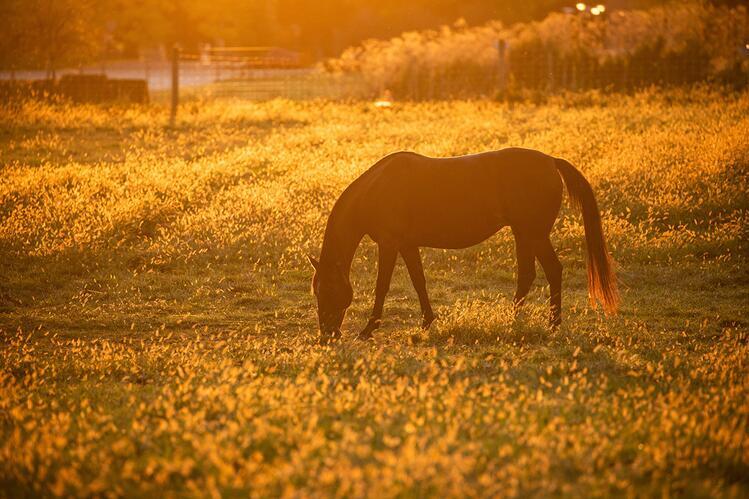ACES expert: How animals are affected by Canadian wildfire smoke

URBANA, Ill. — Livestock and pets may be at risk due to poor air quality from Canadian wildfire smoke, according to animal welfare expert Angela Green-Miller at the University of Illinois Urbana-Champaign. Green-Miller is an associate professor in the Department of Agricultural and Biological Engineering, part of the College of Agricultural, Consumer and Environmental Sciences (ACES) and The Grainger College of Engineering at Illinois.
Polluted air is an uncommon occurrence where Green-Miller is located in Central Illinois. She said the areas currently affected are likely ill prepared to cope with smoky conditions for animals.
“In this region, we’re not used to dealing with polluted air,” she said. “We don’t typically have filtration in our houses or commercial indoor animal production facilities, although some poultry and pig facilities have implemented air filtration systems to control the spread of airborne diseases. These filtration systems should help mitigate some of the air quality issues, putting them in a slightly better position. But for everyone else, we're not equipped to handle this situation.”
To minimize potential health effects on livestock producers and pet owners, Green-Miller offers practical advice.
“Concerns for animals are similar to those for people. One of them being not overexerting yourself to avoid breathing deeper and pulling pollutants deeper into your lungs — the same applies to all animals, including livestock and pets. So, don’t go out and ride your horse, because they’re going to breathe deeper and pull more particulates into their lungs. If you normally run with your highly active dog to get some of that energy out, maybe take a walk instead or toss a toy indoors,” she said. “And if you do have to go on that walk, keep monitoring weather conditions and pick a time of day when the air quality isn’t as bad. That’s the best we can do until the situation gets better.”
Green-Miller also said farmers and pet owners should be on the lookout for abnormal animal behavior while the skies remain hazy.
“We might see animals behaving with a heightened sense of danger because smoke activates a flight response,” she said. “As humans, we know that smoke is coming from a fire that's hundreds of miles away and that we're in no real danger and don’t need to flee from it. Animals don't know that, so we may see flight responses engaged for some of our animals. They might be exhibiting more fearful responses, and potentially more defensive or aggressive postures, because that flight response is engaged. Again, there's really not much we can do to mitigate it, but, we certainly can be aware and think about how we interact and handle our animals so that we're not putting ourselves in danger."
Fortunately, most animals are not likely to suffer long-term consequences from the current situation. While animals with pre-existing respiratory conditions are at a higher risk of health complications, most animals will be minimally impacted.